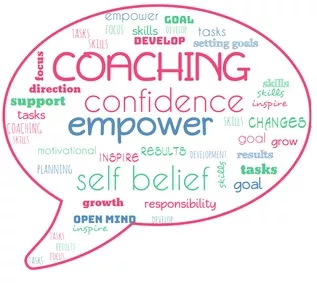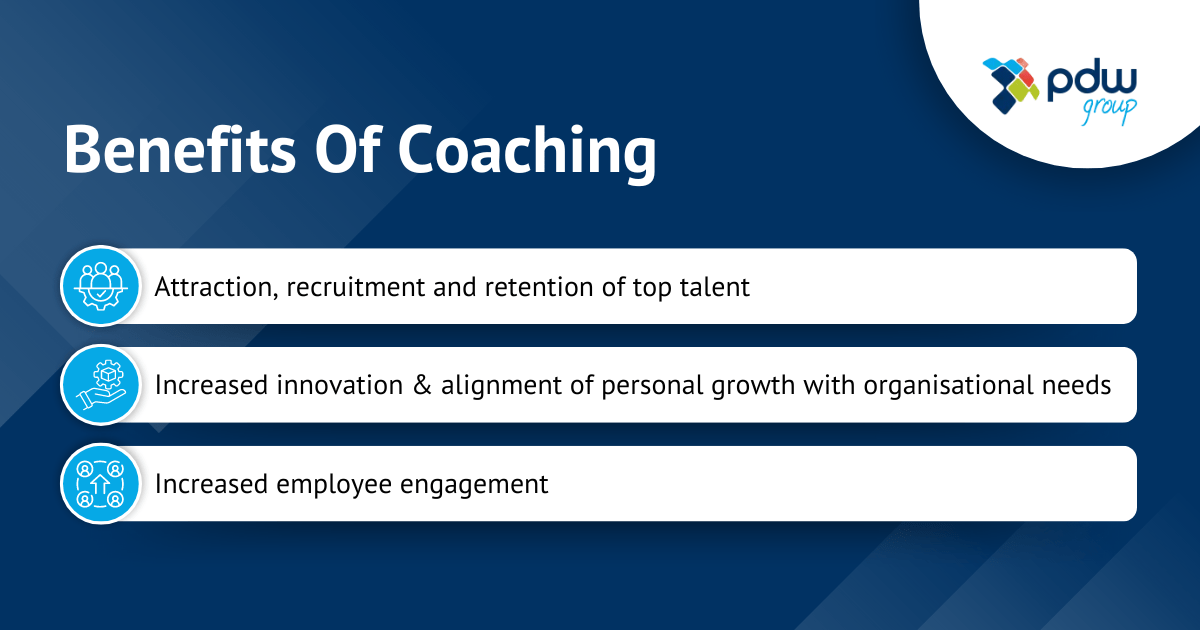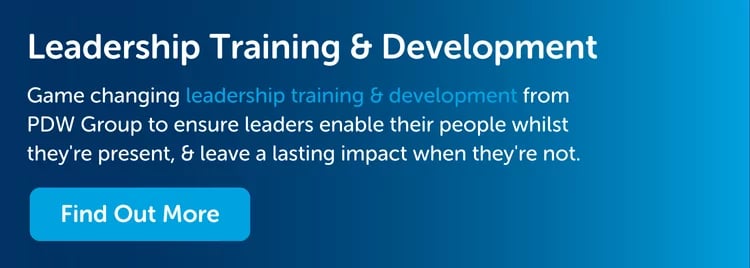
What Is Coaching In The Workplace?
When you think about your idol, your favourite athlete, musician or actor, what is it that makes them so successful? Is it raw talent, years of practice or perhaps something more. More often than not, behind each of these successful individuals is a great coach!
This is true in business too. Think about the most successful people in your business or network and the chances are they have a formal coach already, or they have had great experiences of being coached themselves during their career.
What Is Coaching In The Workplace?
Coaching in the workplace is fundamentally different to what most people experience in their daily workplace diet. Coaching at work is really about helping the person to arrive at the answer, rather than giving them the answer. It's about helping them to arrive at an answer that works best for them, in their situation.
There are many quotes that seek to describe 'coaching' and of course, it is only one of the many approaches successful leaders use.
"Coaching is the art of facilitating the development, learning and performance of another" - The School of Coaching.
Our favourite is by John Buchanan, Australia's most successful cricket coach, and he said:
"The art of a great coach is not to put the greatness into humanity, it is to elicit it, for the greatness is there already"
This epitomises what coaching in the workplace should be.
In a world where typically someone more senior, older or more experienced feels the constant need to demonstrate to others how much they know by simply 'telling' others the answer, it is refreshing and sadly too rare to be effectively coached.
What people, and line managers particularly often don't get, is that they can so easily disable the person they are trying to help just by 'over telling' them. If they just took a step back, and tried a little coaching technique, they would be so much more effective as an enabler of those same people.
There are many practical uses for coaching in the workplace.
Problem-solving in the moment, and helping someone to come up with the right solution to overcome the issue they are experiencing.
Helping someone to think for themselves rather than you doing the thinking for them, right up to thinking longer term and putting together a career plan.
However, coaching does take time and in my job, we tend to hear a lot of people saying "it’s quicker to do it myself", especially when correcting mistakes or developing people. That may be true but if you don’t make them aware they are doing it wrong in the first place, you will be forever correcting their mistakes.
A Practical Example Of Coaching In The Workplace

One of my recent sessions involved an audit partner from an accountancy firm who came to me with the problem of always being the last one in the office reviewing files and correcting mistakes, even though his auditors were experienced, well-trained professionals. This meant that he was missing out on time at home with his family.
After asking a series of challenging questions, he came up with the idea that the next time he found a file with mistakes, he would go back to the auditor and let them know how many mistakes he had found, but not where they were.
When he first tried this approach, the auditor was taken aback. However, he took the file back and managed to find five out of the six mistakes himself. The next time he presented a file to the partner, there were next to no mistakes.
What Are The Benefits Of Coaching?

The benefits of coaching are apparent both for the individual (the coachee), the coach and for the business.
- Attraction, Recruitment and retention of top talent – investing in an individual coaching programme for your talented individuals not only allows them to develop further, but it also shows their value. Better still, train them in how to coach and they can then be your coaches for your next talent tier, developing your succession plan.
- Increased innovation & alignment of personal growth with organisational needs – let your people solve your problems. Often bringing business improvement teams together and getting them to self-coach not only means that you get a wealth of innovative ideas but also you are starting to build cross-functional relationships and self-problem solving.
- Increased employee engagement – an involved, listened to individual, that can carve out their own career path, not always vertically, will be more likely to stay with your business.
3 Tips For Being A Great Coach
- Develop a coaching contract – make it clear to your coachee what to expect from coaching. Ensure it’s confidential and that they feel safe to disclose things to you but also if you disclose to them that it’s a two-way confidential contract. Let them know what is going to happen and that there is a purpose, it's not just to have a nice chat and a cuppa.
- Use a simple structure – There are many coaching models out there, just pick one that works for you. The most effective coaching sessions not only allow the coachee to come to their own conclusions but also gain their commitment to doing something about it. A great way to get them to explore this is to ask what might get in the way of them taking up their actions, and what would be the impact if they don’t do it. The definition of madness is doing the same thing over and over again and expecting a different result.
- Ask the right questions – Of course we all know about open questions but think about some really useful opening questions such as ‘what are your life aspirations?’, ‘what regrets do you not want to have?’, ‘what are you put on this earth for?’, ‘how do you want people to describe you?’. The more challenging the question, the more thought-provoking. However, remember to ask your coachee at the start for permission to challenge.
If you feel like you still need assistance in answering the question "What is coaching in the workplace?" please contact us today and we can discuss how our truly unique behavioural workshops can transform the ability of your people to enable others, and therefore help you to create a truly high performing team.

